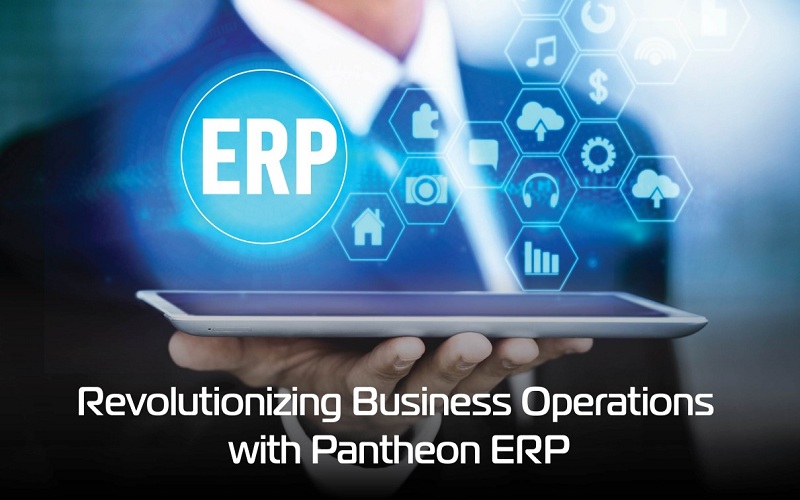
Revolutionizing Operations for Medium Enterprises with ERP
The challenges of digitalization for medium-sized enterprises in the United Arab Emirates are numerous, but one solution that has proven effective is the implementation of an Enterprise Resource Planning (ERP) system. We will explore the role of ERP for medium enterprises and how it can help overcome the challenges of digitalization. We will also discuss the benefits of implementing ERP systems and provide tips on choosing the right solution for your medium enterprise. Whether you are a business owner or an IT professional, this article aims to provide valuable insights into ERP for medium enterprises in the UAE.
The challenges of digitalization for medium-sized enterprises in the United Arab Emirates.
The challenges of digitalization for medium-sized enterprises in the United Arab Emirates are significant. While larger corporations have the resources and expertise to navigate the complexities of digital transformation, medium-sized enterprises often struggle to keep up. Limited financial resources, lack of technical knowledge, and resistance to change are common obstacles faced by these businesses. Additionally, the fast-paced nature of technological advancements makes it difficult for medium-sized enterprises to identify the right digital solutions for their specific needs. Moreover, the UAE’s unique business landscape, with its diverse industries and cultural nuances, adds another layer of complexity to the digitalization process. Overcoming these challenges requires a strategic approach that includes proper planning, investment in suitable technologies, training and upskilling employees, and fostering a culture of innovation and adaptability. By addressing these challenges head-on, medium-sized enterprises can successfully embrace digitalization and stay competitive in today’s rapidly evolving business environment.
Understanding the Role of ERP in Medium Enterprises
In today’s rapidly evolving digital landscape, medium-sized enterprises in the United Arab Emirates face numerous challenges when it comes to digitalization. One key aspect that can help overcome these challenges is the implementation of an Enterprise Resource Planning (ERP) system. ERP systems play a crucial role in streamlining and integrating various business processes, such as finance, human resources, supply chain management, and customer relationship management. By providing a centralized platform for data management and analysis, ERP systems enable medium enterprises to make more informed decisions, improve operational efficiency, and enhance overall productivity. Moreover, ERP solutions offer real-time visibility into business operations, allowing companies to identify bottlenecks and inefficiencies quickly. With the ability to automate routine tasks and provide accurate data insights, ERP systems empower medium enterprises to stay competitive in today’s digital era. However, selecting the right ERP solution tailored to the specific needs of a medium-sized enterprise is crucial for successful implementation and long-term growth.
Overcoming Challenges in Implementing ERP for Medium Enterprises
Implementing an Enterprise Resource Planning (ERP) system can be a complex and challenging task for medium-sized enterprises in the United Arab Emirates (UAE). One of the main challenges is resistance to change within the organization. Employees may be resistant to adopting new processes and technologies, fearing job losses or increased workloads. To overcome this challenge, it is crucial for the management to communicate the benefits of ERP implementation clearly and provide adequate training and support to employees throughout the process. Another challenge is selecting the right ERP solution that aligns with the unique needs of the medium enterprise. It is essential to conduct thorough research, assess different options, and involve key stakeholders in the decision-making process. Additionally, proper planning and project management are vital to ensure a smooth transition. By addressing these challenges head-on, medium enterprises in the UAE can successfully implement ERP systems and reap the benefits of improved efficiency, streamlined processes, and enhanced decision-making capabilities.
The Benefits of Implementing ERP Systems for Medium Enterprises
Implementing ERP systems can bring numerous benefits to medium enterprises in the United Arab Emirates. Firstly, it enhances operational efficiency by streamlining and automating business processes. This allows for better resource allocation, reduced manual errors, and increased productivity. Secondly, ERP systems provide real-time data and analytics, enabling managers to make informed decisions quickly. With access to accurate and up-to-date information, they can identify trends, forecast demand, and optimize inventory levels. Thirdly, ERP systems improve collaboration and communication within the organization by centralizing data and facilitating seamless information sharing across departments. This leads to improved coordination, better customer service, and enhanced overall business performance. Moreover, implementing ERP systems helps medium enterprises comply with regulatory requirements and industry standards, reducing the risk of non-compliance penalties. Lastly, ERP systems enable scalability and flexibility, allowing businesses to adapt to changing market conditions and grow without significant disruptions. Overall, the implementation of ERP systems brings significant benefits to medium enterprises in terms of efficiency, decision-making capabilities, collaboration, compliance, and scalability.
Choosing the Right ERP Solution for Your Medium Enterprise
Choosing the right ERP solution for your medium enterprise is a crucial decision that can significantly impact your business operations. With numerous options available in the market, it is essential to carefully evaluate your company’s specific needs and requirements before making a choice. Consider factors such as scalability, customization capabilities, industry-specific functionalities, and integration with existing systems. Conducting a thorough analysis of your business processes will help you identify the key areas where an ERP system can bring the most value. Additionally, consider the implementation process and ongoing support provided by the ERP vendor. Look for a solution that offers comprehensive training and assistance to ensure a smooth transition and efficient utilization of the system. By selecting the right ERP solution, you can streamline your operations, enhance productivity, and gain a competitive edge in today’s digital landscape.
As digitalization continues to reshape industries, medium-sized enterprises in the United Arab Emirates face unique challenges. However, implementing an ERP system can help overcome these obstacles and drive growth. By streamlining processes, improving efficiency, and providing real-time data insights, ERP solutions enable medium enterprises to stay competitive in a rapidly changing business landscape. The benefits of implementing an ERP system are vast, including increased productivity, enhanced decision-making capabilities, and improved customer satisfaction. However, selecting the right ERP solution for your medium enterprise is crucial for successful implementation. With various options available, it is essential to carefully evaluate your business needs and goals before planning. As technology continues to evolve, it is important for medium-sized enterprises to stay updated and embrace innovative solutions to thrive in today’s digital era. Reflecting on how ERP systems can address the unique challenges faced by medium enterprises prompts us to consider how technological advancements will shape the future of businesses in the UAE.


